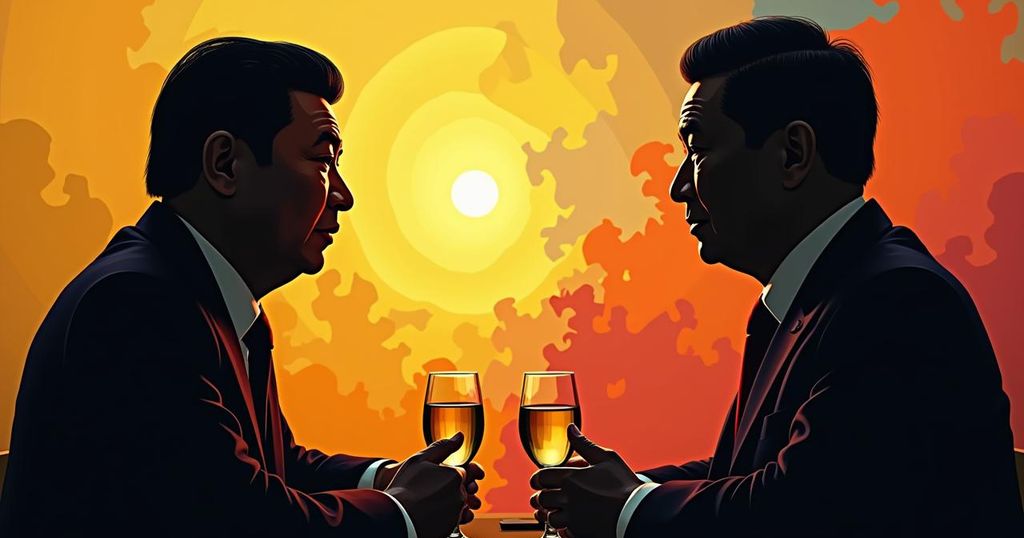China and Brazil Push Forward with Ukraine Peace Initiative Despite Zelenskiy’s Concerns

China and Brazil are advancing a peace initiative regarding the Ukraine conflict, striving to unite developing nations despite Ukrainian President Zelenskiy’s disapproval. A meeting on the sidelines of the UN General Assembly included discussions on preventing escalation and fostering dialogue between Ukraine and Russia, underscoring the broader geopolitical dynamics at play.
In a concerted effort to unite developing nations around a strategy to resolve the ongoing conflict in Ukraine, China and Brazil convened a meeting on the sidelines of the United Nations General Assembly. Despite Ukrainian President Volodymyr Zelenskiy’s criticism of this initiative, which he perceives as favoring Russian interests, the discussions proceeded with participation from seventeen countries. Chaired by China’s Foreign Minister Wang Yi and Brazilian foreign policy adviser Celso Amorim, the dialogue focused on preventing further escalation of the war, safeguarding against the potential use of weapons of mass destruction, and protecting nuclear facilities from conflict-related harm. As emphasized by Minister Wang, “Russia and Ukraine are neighbors that cannot be moved away from each other and amity is the only realistic option,” signaling a call for the international community to endorse an inclusive peace conference involving both nations. The meeting culminated in a communique, elaborating on a six-point peace plan initially articulated by Brazil and China in May, which included the endorsement of ten additional Global South nations, among them Indonesia, South Africa, and Turkey. This coalition aims to facilitate continued discussions under the title of the “friends for peace” group. Notably, President Xi Jinping of China had previously established a “no limits” partnership with President Vladimir Putin in 2022, shortly before the onset of the conflict. While China maintains that it has not provided direct military support to Russia, concerns persist in Western nations regarding Chinese entities supplying materials for weapon manufacturing. President Zelenskiy, addressing the General Assembly, openly questioned the motivations behind China’s and Brazil’s propositions, characterizing them as “alternatives, half-hearted settlement plans, [that would grant] Moscow the political space to continue the war.” Amorim, in response, clarified to reporters, “I am not here to respond either to Zelenskiy or Putin, just to propose a way for peace.”
The ongoing war in Ukraine, initiated by Russia in 2022, has prompted various nations to seek diplomatic solutions. China and Brazil, representing a bloc of developing countries, aim to position themselves as mediators in this conflict, advocating for dialogue and peaceful resolution measures. Their recent gathering during the United Nations General Assembly seeks to counter the dominant narratives coming from Western nations and Ukrainian leadership, who have been critical of any proposals that do not align with their established peace framework. This context of geopolitical tension underscores the challenges faced in negotiations, especially regarding the relationships between major powers and Ukraine.
In conclusion, the collaborative initiative led by China and Brazil to forge a path toward peace in Ukraine demonstrates the complexities of international diplomacy amidst ongoing conflict. While the endeavors to unite developing countries around a peace proposal aim to avert further escalation and destruction, they face skepticism from Ukrainian leaders who fear that alternative plans may undermine their own peace strategies. The divergent approaches to this crisis highlight the varying perspectives on international relations and conflict resolution among nations.
Original Source: www.usnews.com








